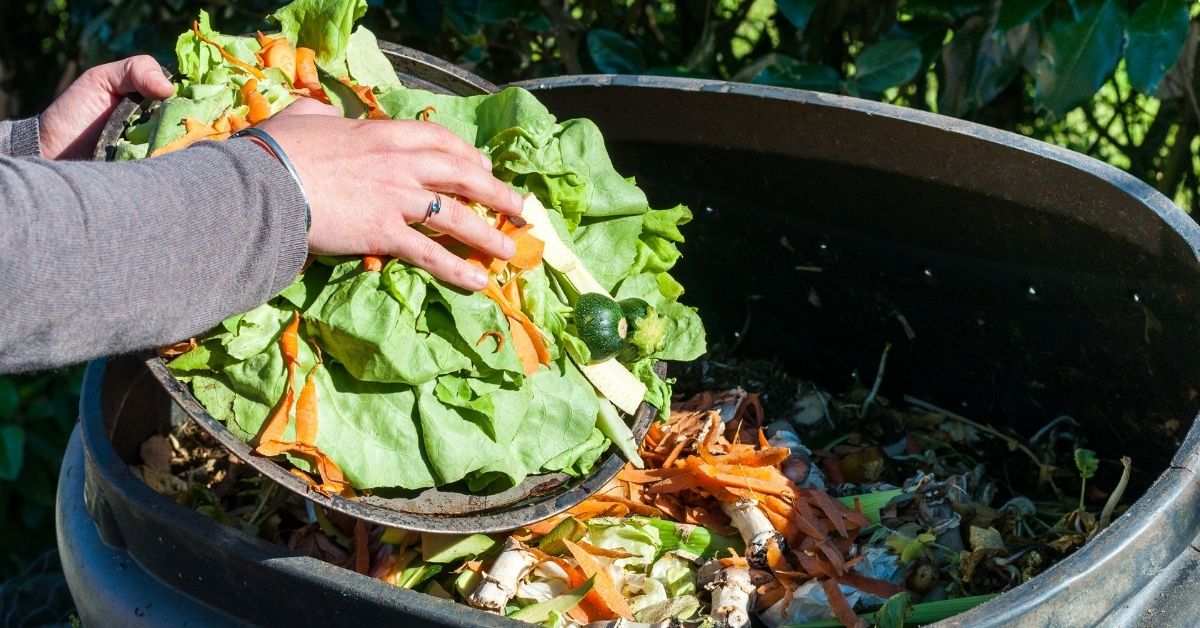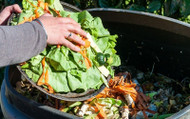Posted by Shannen Godwin on 17th Jun 2021
12 Thrifty Steps to Make Your Garden Eco Friendly

Regardless of whether your garden has an aesthetic focus (ornamental only) or a productive (food producing) focus there are many small, simple to implement and relatively low cost techniques which can easily be introduce to improve the overall friendliness of the garden.
The overall goal should be to create a wonderful garden; somewhere you can easily relax and enjoy the rewards of all your hard work. Simultaneously this should be done with one eye on the environment! Eco-gardening is a way of making the garden more self-sustainable by reducing the energy /water the garden uses up, improving air circulation, promoting recycling, attracting wildlife and in essence being less wasteful.
It’s something that has been particularly important over the past decade, as we look for more and more ways to protect our environment and limit the damage we leave during our time here. It also never hurts the pocket to find ways to be more frugal with our approach to gardening, so we’ve put together our top twelve thrifty tips for making your garden more Eco Friendly.
1.Water early in the morning or late at night
One of the best ways to get start is to look at ways in which you can reduce the amount of water used in the garden around the year. By using water from the mains less and less you will help significantly to reduce the overall national water use rate, but on a domestic level you should see the yearly household water bill come down (which can be no bad thing).
Water plants early in the morning or late at night. Watering during hot periods (such as lunchtime and early afternoon) when the sun is at its strongest will waste water due to evaporation and will be less beneficial to the plants themselves.
2.Re-use rainwater
Install a water butt and re-use rainwater. Why not, it’s free and will reduce your water bills? Water butts can be an efficient and cost effective way to collect and reuse natural rainwater. The beauty of living in a country like Britain is that we get plenty of rainfall throughout the year. The thought that we do not collect and reuse this, instead being depending on water from the tap can be a little hard to understand at times. Some very large water butts can store over 24,000 litres of water (although there are plenty to choose from to suit all garden sizes) and can easily be transferred to the water can for use around the garden.
3.Introduce drought-resistant plants
There are many great drought resistant plants which can be introduced to the garden and will thus reduce the dependence on manual watering during dry periods. For more advice on drought resistant plant visit the RHS website for their comprehensive list of recommended plants.
4.Plant trees in the garden
To improve the purity of air you could try planting some larger trees such as conifers, Betula, Beech trees and Magnolia. Not only will they look beautiful through the year they will help improve the circulation and quality of air. This is even more important in urban areas where the actual air is more likely to become polluted because of increased exposure to chemicals and gasses.The role of trees is not one to underestimate. They produce the oxygen we need to survive and also help to remove particles from the air that could potentially be harmful. They also act as protection to other plants, provide a cooling shade in the summer and also can help reduce noise for your garden.
5.Create a water feature or pond
You could also look at introducing a water feature into the garden area to improve purity of air. A steady stream and flow of water, not only adds a sense of tranquillity and beauty but also helps to remove harmful pollutants from the air. This along with some well positioned trees will help create an environment of lovely fresh air and help the plants, soil and your own health as well.
6.Reduce Electricity used in the garden
By reducing the overall amount of electricity the garden uses your bills will come down and you will be using less national resources. This can only be a good thing, and combined with the work done by wind farms and solar panels we should see an overall reduction in usage from the national grid.
7.Use solar garden lighting
Instead of using large outdoor lighting you could try to introduce some solar garden lights. They come in many shapes, sizes and budgets and can easily be installed. They will store energy from the natural light during the day and release this when needed at night time. They have become much more reliable in the past ten years as an alternative and are certainly an area to explore.
8.Choose alternatives to chemicals/pesticides
Where allowable we suggest using organic pesticides and products in and around the garden. Choose the right product for the job and make sure it will not have any detrimental effect on other insects around the garden. You could try using some alternatives to pesticides such as crushed egg shells or grounded coffee beans to deter slugs and snails or by planting marigolds in your flowerbeds (they are known to deter insects and pests).
Strong smelling perennials such as Lavender and Rosemary can also have the effect of keeping pests away from you borders so introducing a number of these will help avoid using chemicals. Many people choose to actually introduce certain insects into the garden as a way of scaring off those pests that will do damage to plants. Lady bugs are great at eating aphids and will help preserve your plants.
9.Recycling will help create an organic compost or mulch
You can create your own organic compost by recycling gardening waste, food waste and fall leaves. By recycling this waste we will be helping to keep it out of the ever increasing landfills and also will in turn create a moisture retentive and rich compost or mulch that can used around the garden. The plants will benefit hugely from this natural and organic addition to the soil and also will save you buying manure or compost the following year.
The choice of goods to use in the compost bin or heap is almost endless and getting the balance right may take a number of attempts. Luckily the internet can be your friend and will the popularity growing hugely in this area, there are many good gardening forums and websites to offer advice. Some of the most popular, everyday items from the household to find their way onto the compost heap include raw vegetables, crushed egg shells, fruit peelings, newspapers, cardboard and even teabags. Gardening waste such as fallen leaves, wood cuttings, grass cuttings, old bedding plants and plant foliage are also used regularly.
10.Attracting and caring for wildlife is key
Make the garden wildlife friendly – A key feature to creating a garden that is in touch with nature is to make sure that it is attractive to wildlife. By allocating just a little bit of time and space to your garden, you can easily attract various wildlife to your garden all year around. For many people wildlife is a welcomed addition to the garden providing extra character and also the knowledge that they are doing their bit to help with British conservation.
11.Make sure you have an area to enjoy and relax
Make sure that you allow an area for enjoyment. Creating a garden full of colour and fresh fruit/vegetables is great and highly rewarding, but one key aspect to making sure your love for gardening lasts a lifetime is getting out and enjoying the garden. Have an area where you and your family/friends can sit around and enjoy the fresh air and beauty you have worked so hard to create.
Many people love the summer barbeque as it allows people to gather together outdoors and enjoy their surroundings, with some good food. These great moments are vital to enjoying the garden and the summertime. Get out there and enjoy it! Getting in touch with your own little piece of the environment is critical to becoming an environmental gardener.
12.Grow your own fruit, vegetables and herbs
Growing your own fruit, vegetables and herbs is a fun, rewarding and can be a great step towards being less dependent on supermarkets. Even in gardens when space is at a premium you can easily grow strawberries, raspberries and blueberries in pots or containers.
If you have the space available why not allocate a patch or raised bed towards growing some potatoes, carrots, asparagus, beans or whatever vegetables take your fancy. You could also look at planting some fruit trees which not only produce great tasting fruit but will add ornamental blossom on spring.

